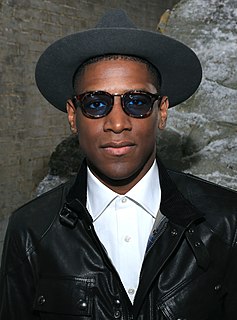A Quote by Arundhati Bhattacharya
If you are approachable, if you keep your line of communication open, then very often, you get to hear what you need to hear.
Related Quotes
I think right now is when we need to hear different voices coming out of all parts of the world. You can't just hear the politicians and the military leaders. You have to hear from the taxi drivers. You have to hear from the painters. You have to hear from the poets. You have to hear from the school teachers and the filmmakers and musicians.
If I'm using Nonviolent Communication I never, never, never hear what somebody thinks about me. Never hear what somebody thinks about you, you'll live longer. You'll enjoy life more. Hear the truth. The truth is that when somebody's telling you what's wrong with you, the truth is they have a need that isn't getting met. Hear that they're in pain. Don't hear the analysis.
When you are influential and highly respected, people tend to tell you what you want to hear, not what you need to hear. They are seeking your approval, or they flatter you. Unfortunately, this creates a gap between what you hear and reality. If you find yourself in that situation, you will need to work extra hard to get the people close to you to speak honestly into your life. And you will have to become highly intentional in observing and listening.
It is raining and you can hear the pattern of the drops. You can hear it with your ears, or you can hear it out of that deep silence. If you hear it with complete silence of the mind, then the beauty of it is such that cannot be put into words or onto canvas, because that beauty is something beyond self-expression .
It was only when I got to college that I realized that the rest of the world didn't run the way my world was run, and that there was a need for feminism. I'd thought it was all solved. There are people like my mom, clearly everyone is equal and it's all fine. Then I get into the world and I hear the things people are saying. Then I get to Hollywood and hear the very casual, almost insidious misogyny that just runs through so much of the fiction. It was just staggering to me.


































